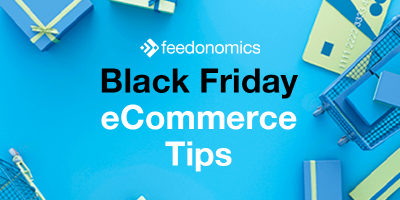2020 was another record-setting year for online shopping, with all-time highs in sales for Black Friday and Cyber Monday. Whether those records stand remains to be seen, but 2021 is poised to be another giant year for ecommerce. Merchants who invested in their ecommerce capabilities over the past year should reap the rewards this holiday season. We reached out to business leaders and ecommerce experts to get their tips for making the most of Black Friday and beyond.
1. Make sure your website can handle more traffic.
Ecommerce is largely driven by integrated technology and the transfer of data, so maintaining and improving your existing systems is essential for maximizing your Black Friday potential. We all hope for a huge volume of sales, but sudden surges in traffic and orders can cause big problems if you’re unprepared. Some of our experts recommended that merchants stress test their websites ahead of time and possibly use a load balancer to make sure their technical architecture is sound. If your site goes down, you’re losing sales and customers.
2. Plan to offer deals before, on, and after Black Friday.
Retailers have traditionally planned their initiatives around Black Friday, the day after Thanksgiving when eager shoppers seek out the best deals of the season. But as the window for holiday promotions expanded and more ecommerce options emerged, “Black Fiveday” became the more appropriate way to describe the bargain shopping period from Thanksgiving through Cyber Monday. The holiday deals now come earlier and stay longer. Amazon unveiled “Black Friday-worthy deals” at the beginning of October this year, partly to ward off supply chain issues from an increased concentration of orders over a small period of time.
As shoppers’ perceptions of the holiday season shift, merchants can also reach out to them earlier with promotions. As one of our expert respondents put it, the holiday season “begins on Veterans Day and lasts until you no longer can guarantee delivery before Christmas.”
3. Allow time for changes.
You want to make sure everything is calibrated and running smoothly by the time customers start pouring in. Remember that shopping ad campaigns need some time to be fine-tuned, especially if you want to implement any A/B testing or optimize your product feed. Likewise, any marketing materials usually require several rounds of edits. You may also want additional infrastructure to ensure you have a simple checkout process, effective remarketing prompts, or other tools to streamline the product discovery and conversion process.
Business consultant Nicholas R. Primavera, of Sweet Nicks Inc., said that setting goals and communicating clearly with the team should also happen months in advance. “Ensure there are no conflicts with messaging, and there is a reason to offer a Black Friday sale or event. Do not just have one to have one.”
4. Strengthen your brand.
Ahmed Zubair, an assistant ecommerce manager from WestPoint Home USA, recommends updating your product content with better images and descriptions, as well as running at least one sponsored brand ad campaign on Amazon. Mastering marketplaces is crucial for businesses that want to succeed in ecommerce, and optimizing your product feed for Amazon is just as important as promoting your brand.
Focusing on brand loyalty campaigns throughout the year should also pay dividends during the Black Friday period, according to our experts. “The cumulative effort of the year is capitalized on during Cyber Week, where people go to retailers who they already know and expect hefty discounts,” said Robert Dorsey II, a senior manager of SEM and analytics at SimplePart, LLC.
5. Don’t lose customers.
You’ll see a lot about the potential for great gains during Black Friday, but you need to be wary of the possible losses as well. “Customers expect discounts, fast and free shipping, and easy returns,” Dorsey said. “You must be prepared, or be prepared to lose their business on more than just Black Friday.”
Whether you’re promoting your products through local inventory ads or selling them directly on marketplaces, the customer experience should be consistent and positive. Make sure your website is functional, your ads are accurate, and you efficiently manage your orders on marketplaces, or your reputation might take a hit.

With its leading data feed management platform, Feedonomics helps brands, retailers, and agencies optimize and list products on hundreds of shopping destinations around the world. Learn more about our full-service solutions for advertising channels and marketplaces.
